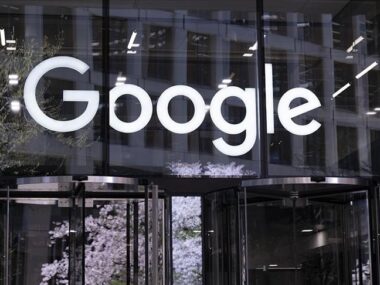When you activate an artificial intelligence chatbot like Google’s Bard or OpenAI’s ChatGPT, you are essentially engaging with the outcome of three or four crucial components.
Firstly, there is the engineering expertise required to create the AI model for the chatbot. Secondly, there’s the extensive training data that the model analyzed to learn how to respond to your queries. The third component involves the advanced semiconductor chips employed for the training process, which can take months, even with the fastest chips available.
Now, cloud platforms are rapidly emerging as the fourth indispensable element in AI. They consolidate the computational power of numerous high-demand semiconductor chips, offer online storage, and various other services, leasing these resources to AI companies seeking substantial processing capabilities and a location to store their training data.
AI developers’ heavy reliance on cloud services plays a pivotal role in shaping the dynamics of the broader AI industry, positioning cloud companies as central figures in a technology set to revolutionize work, entertainment, and education.
A small group of major players, notably Amazon, Microsoft, and Google, currently dominate the colossal half-trillion-dollar cloud market. However, policymakers and critics within the industry are raising concerns about the considerable and potentially anticompetitive influence that Big Tech giants wield over the future of AI.
Massachusetts Democratic Senator Elizabeth Warren expressed her deep concern about the concentration of power in cloud computing and storage within a handful of Big Tech firms. She emphasized the need for sensible regulations to prevent these companies from further solidifying their control over AI, stifling competition, and jeopardizing consumer privacy, safety, innovation, and national security. She stressed the importance of safeguarding competition in this critical sector.
All three of these tech giants declined to comment on the matter. Supporters of the industry argue that the leading companies in the sector engage in robust competition for business and that their extensive scale offers AI companies a comprehensive solution for their cloud computing requirements.
However, as is the case with any crucial industry dominated by major players, policymakers’ concerns revolve around the potential for inflated prices, anticompetitive collaboration, exploitative contract terms, or other practices that could determine the ultimate cost of using AI services or the types of products that reach the market.
The cloud market is characterized by a limited number of major players.
The share of total cloud expenditure dedicated to AI is expected to increase significantly as generative AI gains momentum. While the overall public cloud market is projected to experience substantial growth, with total spending potentially exceeding $679 billion next year according to market research firm Gartner, artificial intelligence could account for as much as 30% to 50% of that total within just five years, as suggested by Gartner and other industry analysts.
Matthew Prince, CEO of the internet monitoring and security company Cloudflare, noted that only a select few cloud platforms possess the capacity to provide the extensive processing power increasingly required by AI companies and their clientele.
According to Prince, as AI developers and other businesses that want to leverage AI become increasingly reliant on cloud providers, these providers are likely to play a more significant role in determining the success or failure of companies in the AI industry.
Currently, artificial intelligence represents only a minor segment, possibly less than 10%, of the $563 billion public cloud market, as indicated by Gartner’s research.
The dominant players in the cloud-based AI sector are Amazon, Microsoft, and Google, holding a substantial lead, while smaller cloud providers such as IBM and Oracle also participate in this space.
There is an increasing level of regulatory scrutiny both domestically and internationally.
Governments worldwide are paying attention to developments in an industry that is gaining increasing prominence.
In the United States, both the Federal Trade Commission (FTC) and President Joe Biden have expressed concerns about competition within the cloud markets, recognizing it as a potential challenge for AI development.
In June, the FTC noted that if one or more companies were to establish a dominant position in the cloud industry or any other critical aspect of AI development, they could wield significant influence over a substantial portion of economic activity. This is because AI is increasingly becoming an integral part of everyday life.
President Biden also acknowledged these concerns when he issued an executive order in October addressing artificial intelligence. The order emphasized the importance of fostering a fair and open market for AI development and highlighted the need to prevent unlawful collusion and address the risks associated with dominant firms’ control over key assets such as semiconductors, computing power, cloud storage, and data, which could harm competitors.
It’s worth noting that the executive order did not name specific cloud providers or allege any misconduct by the industry.
The FTC and other global competition regulators have conducted extensive investigations into the cloud industry in recent years, conducting comprehensive studies into the sector.
For example, the UK government initiated an investigation in the fall, focusing on Microsoft and its software licensing practices, which are largely unrelated to AI. In March, the FTC announced its own inquiry into the industry in collaboration with France, Japan, the Netherlands, and South Korea.
Sarah Myers West, Managing Director at the AI Now Institute and a former FTC senior advisor on AI, pointed out that most government inquiries have reached a similar conclusion: the cloud market is highly concentrated. One reason cloud platforms collaborate with AI companies is that when AI products reach consumers or businesses, it generates a continuous demand for more cloud resources. Additionally, this partnership allows large tech companies to collect even more data from businesses and internet users, drawing them into their cloud ecosystems as a profitable avenue for these tools.
What cloud critics say they worry about
Several specific practices within the realm of cloud computing have raised concerns about potential competition issues, as noted by industry analysts.
One such practice involves the frequent use of exclusive agreements that AI companies enter into with just one or two cloud providers in exchange for substantial investments. This practice is common among AI developers, in contrast to other sectors where the use of multiple cloud providers may be more widespread. Many AI startups that create tools available in the market have already established exclusive licensing agreements with a particular cloud provider. Even smaller players often rely solely on a single cloud infrastructure company.
For instance, OpenAI’s ChatGPT tool, which garnered significant attention and played a pivotal role in the ongoing AI enthusiasm, relies heavily on its partnership with Microsoft. Microsoft has committed a substantial amount, $13 billion, in cash and free cloud computing resources to support OpenAI’s mission. Microsoft’s CEO, Satya Nadella, emphasized the deep partnership between the two companies and stated that Microsoft has the resources, including people, computing power, and data, to handle all of OpenAI’s AI work if necessary.
In a similar vein, Amazon recently announced a significant investment of up to $4 billion in the AI startup Anthropic, which resulted in Anthropic being named the “primary” cloud provider. This came shortly after Anthropic had previously declared a deal with Google as its “preferred” cloud provider.
Some experts have expressed concerns that offering free cloud credits can potentially “lock in” AI companies as customers, making it challenging for them to switch providers or combine features from different providers. This practice may discourage competition, and as it becomes more entrenched, it becomes increasingly difficult to untangle.
Additionally, certain agreements between cloud and AI companies, such as the Amazon and Anthropic deal, can create opportunities for large tech companies to acquire ownership stakes in influential AI startups. The UK’s competition regulator is considering the possibility of an antitrust investigation into Microsoft’s relationship with OpenAI in this context, suggesting that OpenAI’s recent leadership changes may have led to a “relevant merger” warranting an investigation. Microsoft, however, has denied owning “any portion” of OpenAI, although it did secure a non-voting seat on OpenAI’s board.
Another practice drawing scrutiny is the fees charged by some providers for data withdrawal from a cloud provider. Critics argue that these fees make AI more expensive. If AI companies had the ability to transfer their data cheaply and easily from one provider to another, it could significantly reduce the overall cost of AI training, potentially cutting it in half, according to some experts.
How cloud companies defend their record?
Cloud providers and their advocates argue that while the cloud market may appear concentrated due to the high costs associated with building cloud services on a massive scale, it is still highly competitive.
Amazon, for example, pointed out to the FTC that it has significantly reduced prices for services such as computer processing, data storage, and data transfer since the inception of AWS. They contend that competition among cloud and IT providers is robust and ultimately benefits the U.S. economy.
Google has also demonstrated its commitment to compete for AI cloud customers by introducing a new generation of powerful cloud-based computing processors designed to train large AI models faster.
Cloud customers, including AI developers, are savvy when it comes to negotiating agreements with cloud providers, as Microsoft stated. Customers engage in extensive negotiations covering aspects such as pricing, storage capacity, contract duration, and more. For cloud vendors, each project is essentially a pitch, and if a customer doesn’t receive the expected quality or value, they have the freedom to explore alternative options.
Exclusive agreements between AI companies and cloud providers can offer efficiency for developers and deployment, potentially enhancing security by using a single vendor, according to Brandon Jung, VP of Ecosystem and Business Development at AI startup Tabnine.
Critics argue that some of the concerns raised by policymakers stem from the skepticism that governments have harbored for years towards app stores, social media platforms, and e-commerce giants, many of which are also prominent players in the cloud computing industry. There’s a perception that concentration in these markets is problematic and has led to similar concerns being applied to cloud computing, even though the customer base and dynamics are distinct.
While some AI companies, like Cohere AI, opt to work with all major cloud providers to avoid exclusive arrangements, such cases are considered exceptions that prove the rule. Critics like Sarah Myers West assert that cloud firms wield significant power in the market, and the dominance of a few major players remains a prominent issue.











